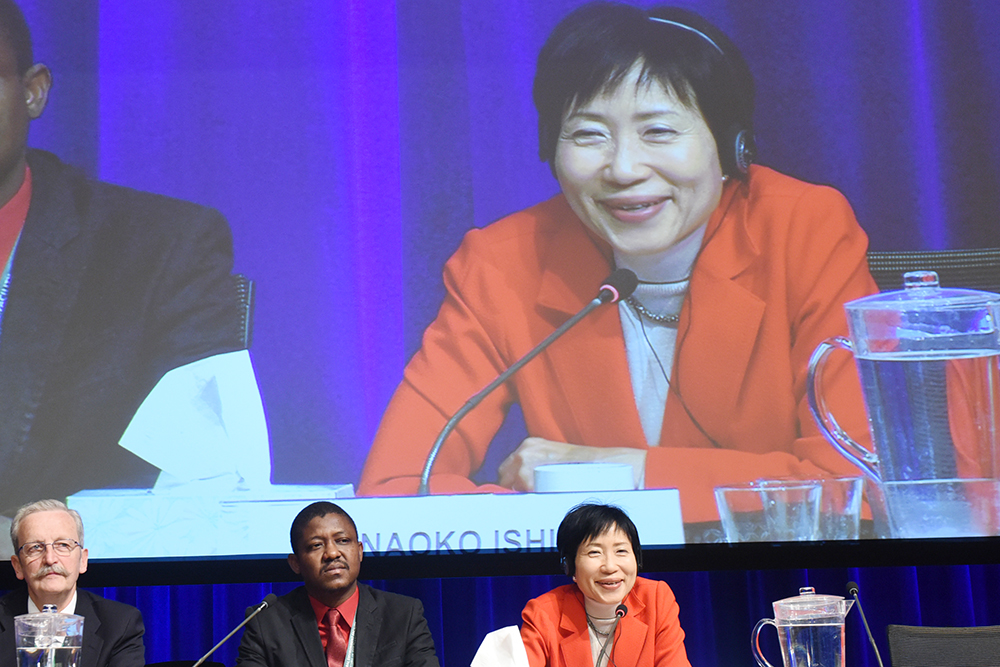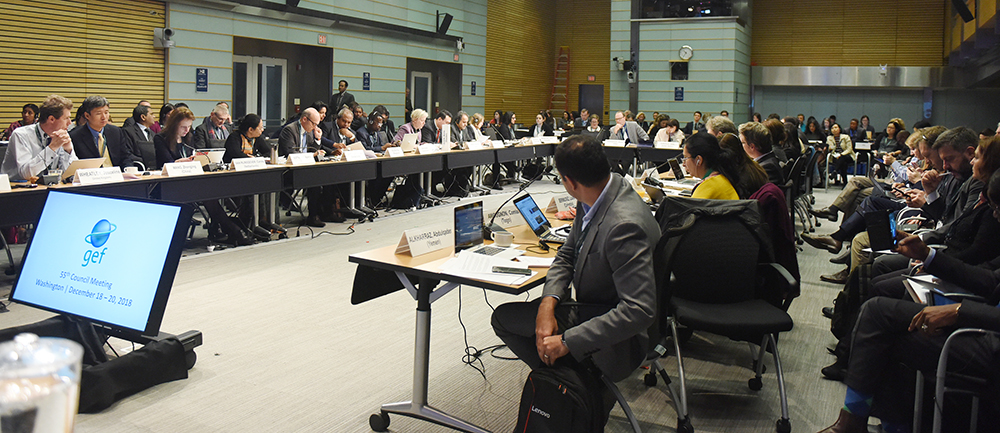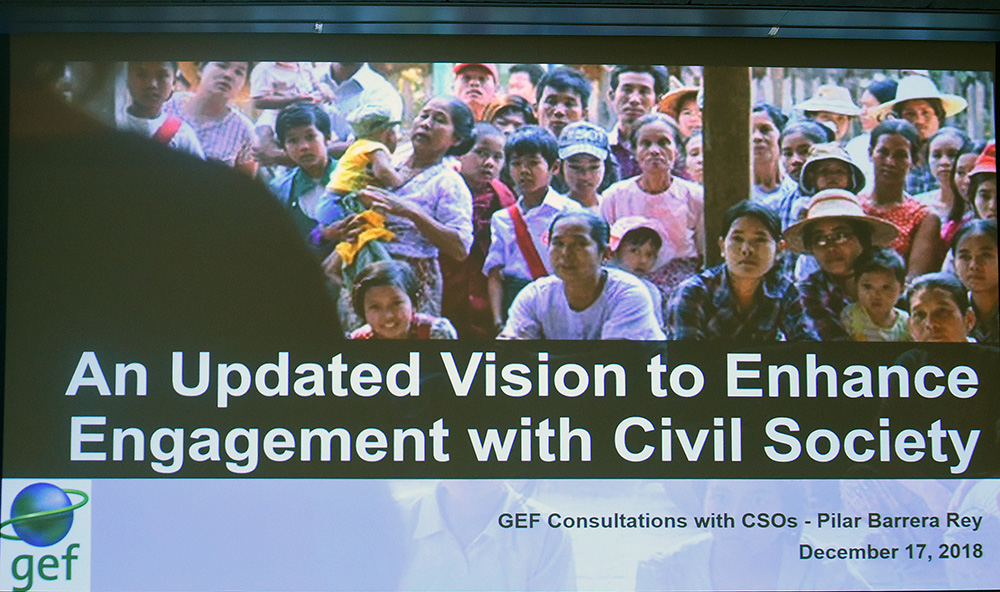On the third and final day of the 55th meeting of the GEF Council, the Council concluded its consideration of a number of decisions, discussed measures to enhance the sustainability of GEF projects and programs, convened as the Council of the Least Developed Countries Fund/Special Climate Change Fund (LDCF/SCCF), and approved the Joint Summary of the Chairs for the Council meetings.
On the sustainability of GEF programs and projects, the Secretariat presented an information note indicating that it could not yet recommend concrete measures and that further work with Agencies and the Independent Evaluation Office (IEO) is required. Members called for action soon, with one Member suggesting that the Secretariat propose measures to the 56th meeting of the Council, and the IEO offer recommendations to the 57th meeting, and another Member suggesting that the Secretariat propose a work plan to the 56th meeting. CEO Ishii said the Secretariat would reflect on the issue and come back to the Council.
GEF Council Members also convened as the 25th meeting of the Council of the LDCF/SCCF, and adopted a Work Program comprising six project concepts, with resources amounting to US$45.85 million for the LDCF, including project grants and Agency fees.
At the conclusion of the LDCF/SCCF Council, Members announced the following pledges and contributions to the LDCF/SCCF on behalf of their governments: Walloon Region of Belgium: EUR2.9 million to the LDCF; Denmark: DKK150 million to the LDCF; Finland: EUR2 million to the LDCF; France: EUR20 million to the LDCF; the Netherlands: US$9.1 million to the LDCF in 2018; Sweden: SEK135 million to the LDCF in 2018; and Switzerland: US$9.9 million to the LDCF and US$3.3 million to the SCCF, pending parliamentary approval. Germany reported that it will finalize its contribution of EUR25 million before the end of the year.
Following approval of the Joint Summary of the Chairs for both the GEF Council and the LDCF/SCCF Council, GEF CEO and Chairperson Naoko Ishii closed the meeting at 1:54 pm.
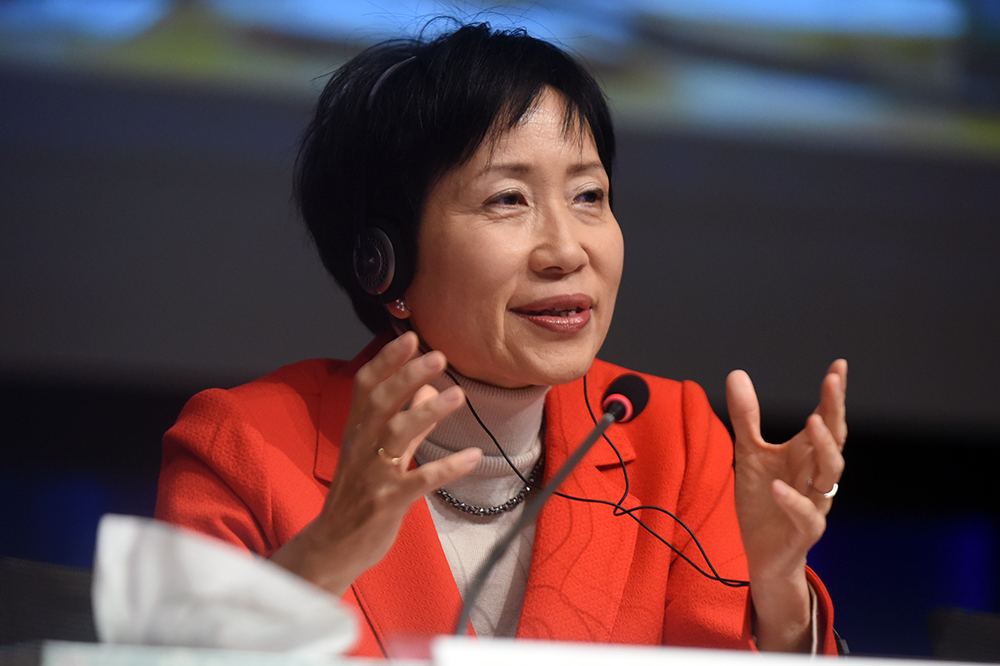
GEF CEO and Chairperson Naoko Ishii
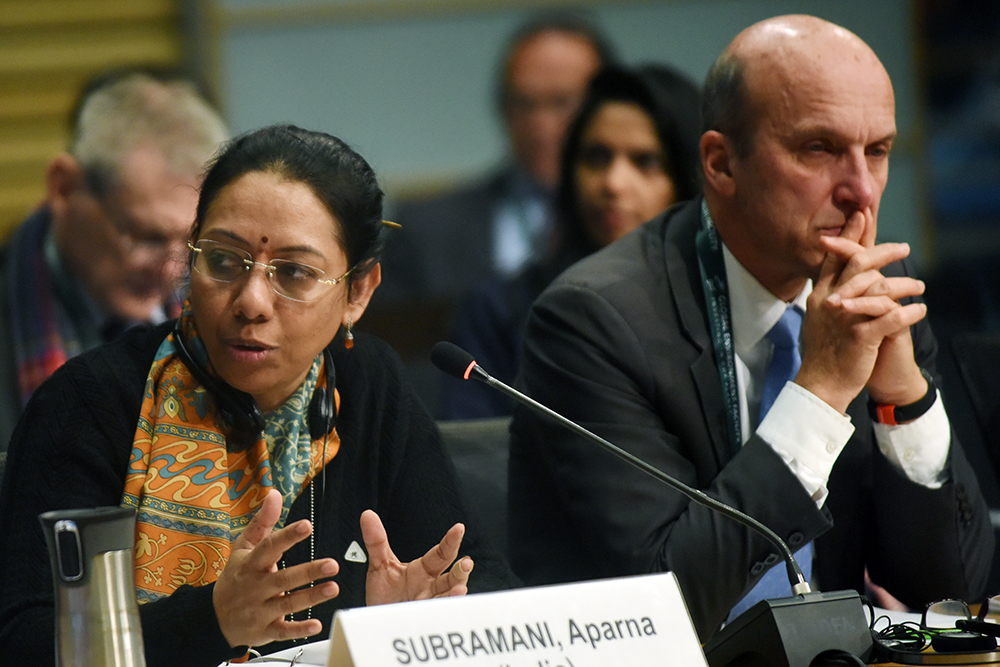
Aparna Subramani, India, and Stefan Schwager, Switzerland
25th LDCF/SCCF Council Meeting
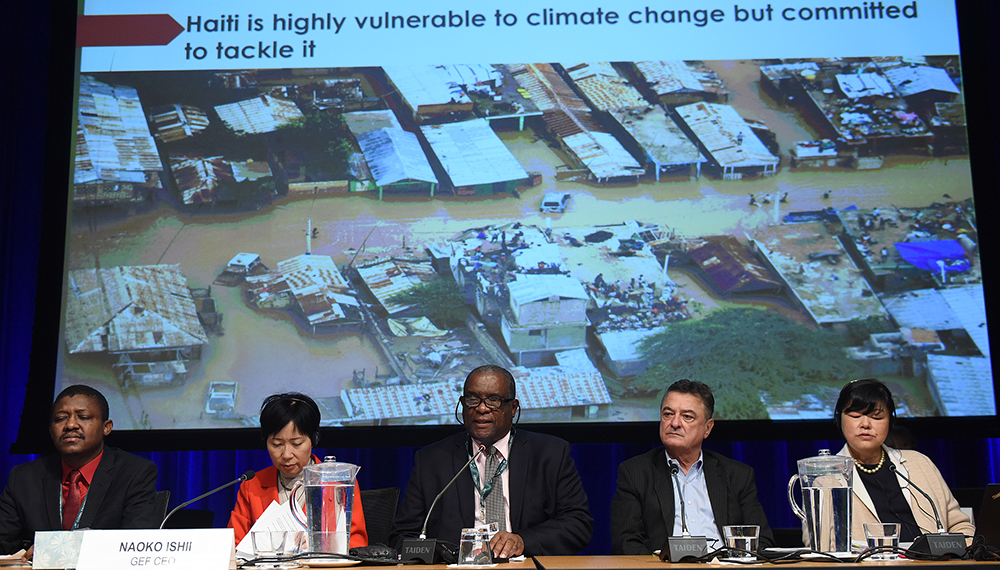
Moise Jean-Pierre, Haiti, and GEF Operational Focal Point for Haiti (center), showcases an LDCF project in Haiti.
Pledging Session for the LDCF and the SCCF
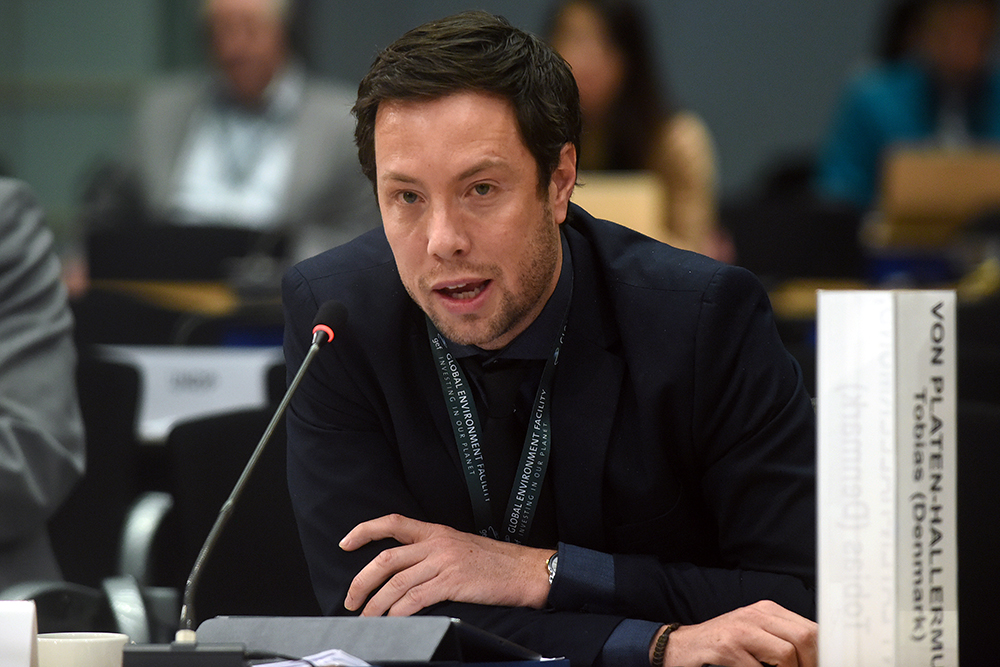
Tobias Von Platen-Hallermund, Denmark
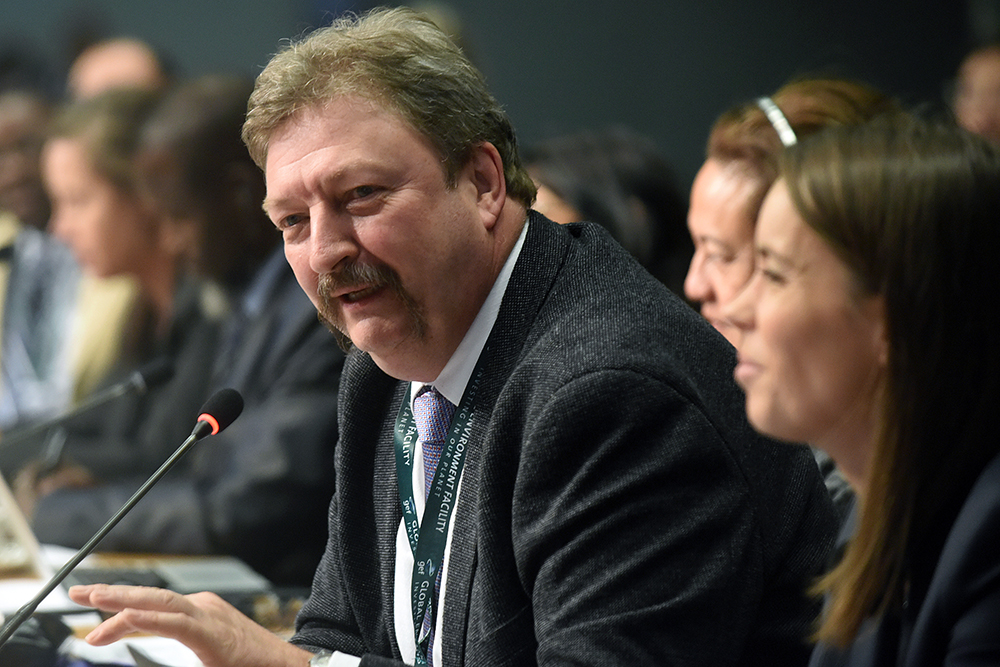
Jozef Buys, Belgium
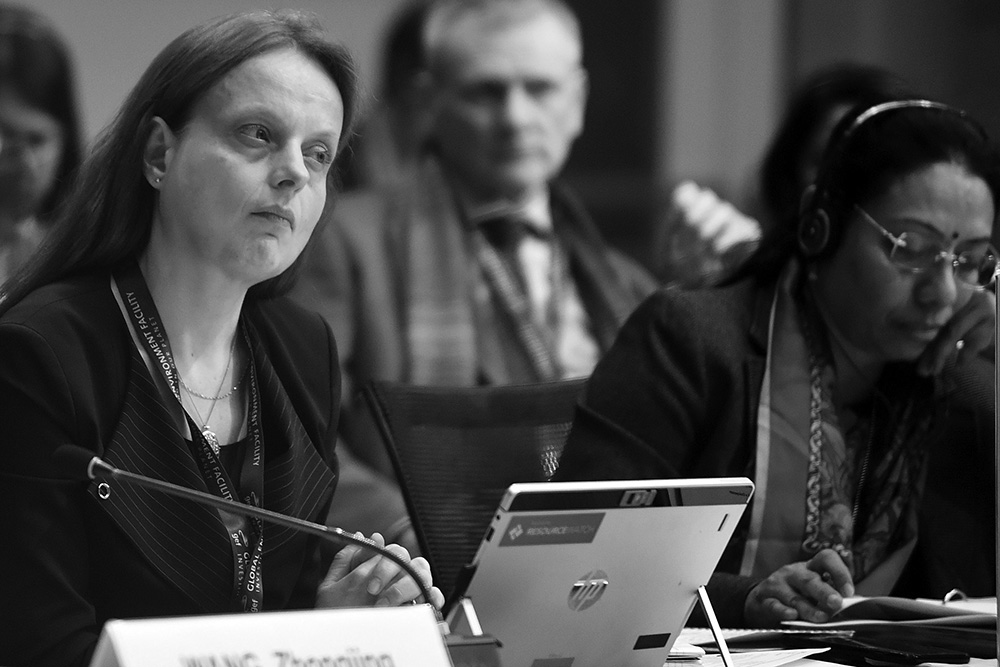
Carola Van Rijnsoever, the Netherlands
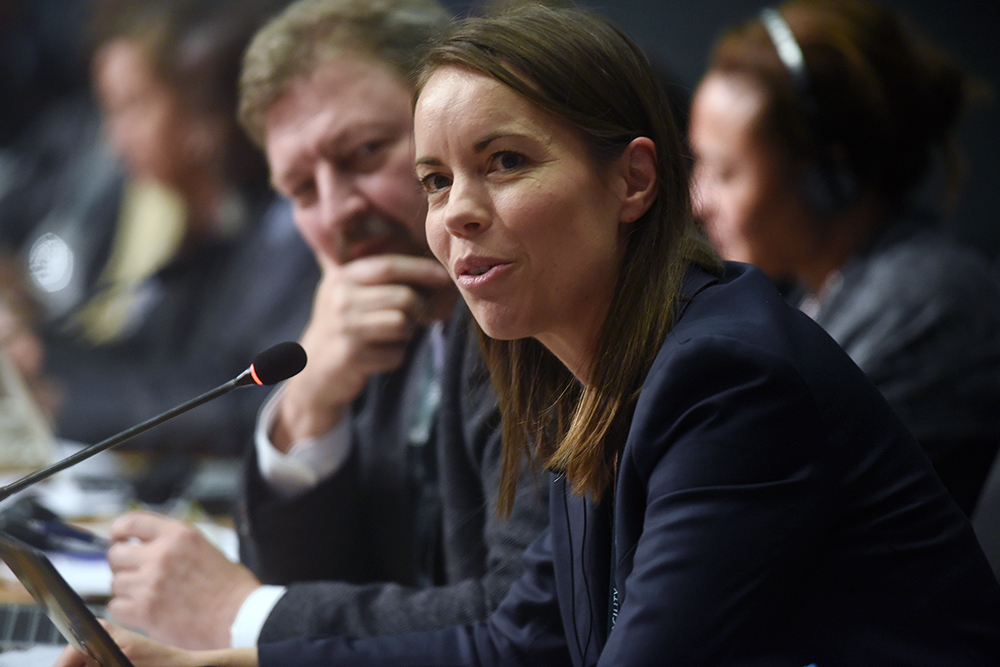
Stephanie Bouziges-Eschmann, France
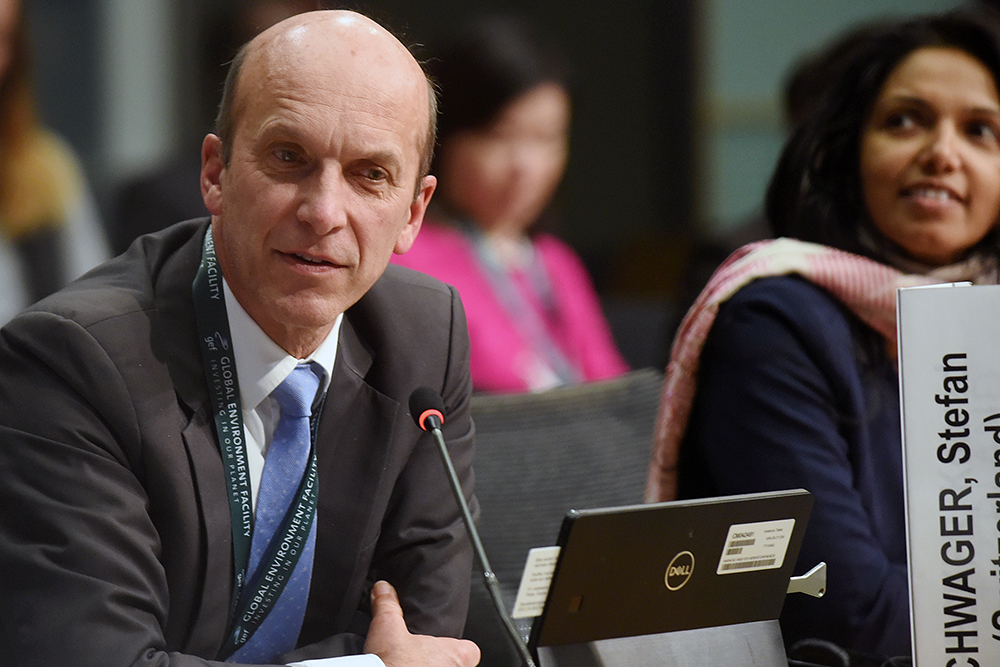
Stefan Schwager, Switzerland
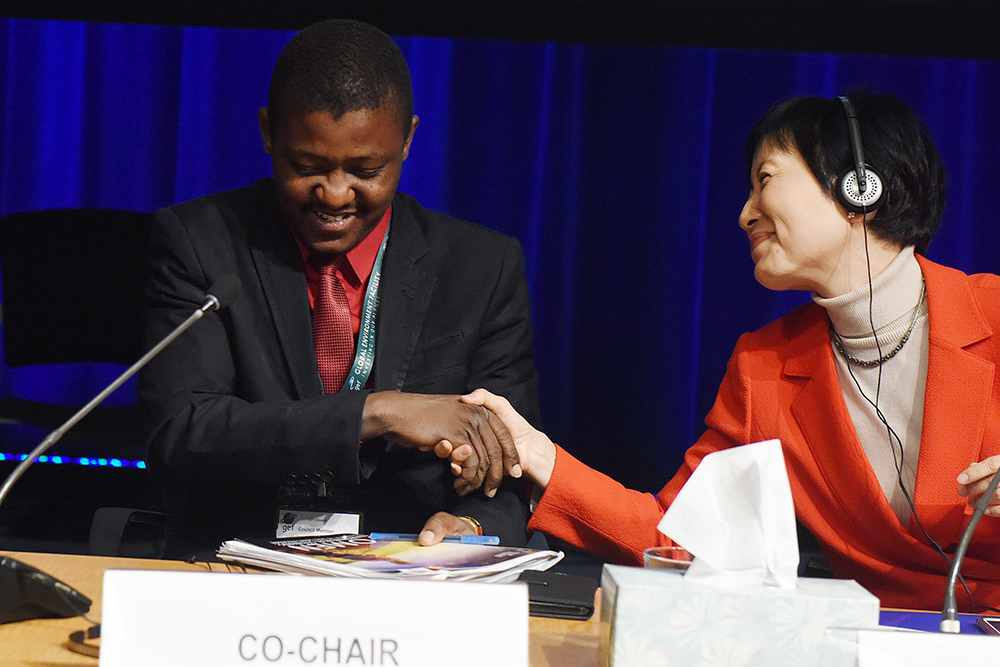
Co-Chair Adbul Bakarr Salim and GEF CEO and Chairperson Naoko Ishii at the conclusion of the Council meeting
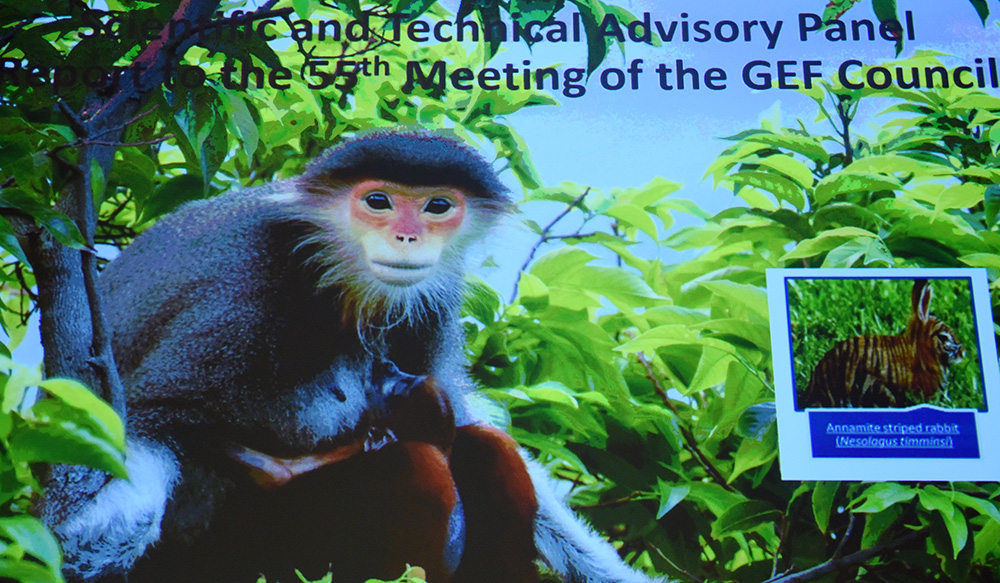
A red-shanked lengur, sometimes called the "costumed ape" for its extravegant appearance, is native to Southeast Asia.
On Wednesday, 19 December 2018, the GEF Council meeting opened with a presentation from Rosina Bierbaum, Chairperson of the Scientific and Technical Advisory Panel (STAP), on the STAP’s recent and upcoming activities, including:
- her role as a science advisor to the new Global Adaptation Commission and work that is expected during 2019 on adaptation issues;
- phase 3 of STAP work on climate risk screening, looking at how Agencies screen and develop appropriate guidance;
- recently completed papers on novel entities and on innovation and GEF, noting the latter has resulted in STAP recommendations to the GEF Partnership regarding defining their risk appetite;
- issues that STAP will cover in a forthcoming paper on local commons for global benefits;
- how lessons learned from the Integrated Approach Pilots (IAPs) are being used in the design and review of the GEF-7 Impact Programs (IPs) documents that will be submitted to the June 2019 meeting of the GEF Council; and
- possible future STAP work, including: an advisory on the use of Earth observation data to improve project planning and programming; further work on land degradation neutrality (LDN); work with the scientific community and Global Adaptation Commission to develop adaptation metrics; an examination of issues in aquaculture; and guidance on multi-stakeholder engagement.
During a discussion on Relations with the Conventions and Other International Institutions, representatives from the multilateral environmental agreements (MEAs) for which the GEF serves as a financial mechanism reported on recent or upcoming decision-making events related to the GEF and its programming directions. Members highlighted the role of the GEF in identifying synergies among the Conventions, as well as the importance of cooperating with the Green Climate Fund (GCF).
The Council also discussed the: GEF-7 Non-Grant Instrument Program; Semi-Annual Evaluation Report November 2018 and Management Response; Options for a Responsible Investment Strategy; Policy on Access to Information; Report from the Ad-hoc Working Group on Governance; and Strengthening Consultations with Civil Society: Proposed Topic for Discussion at the Consultations of the 56th GEF Council Meeting.
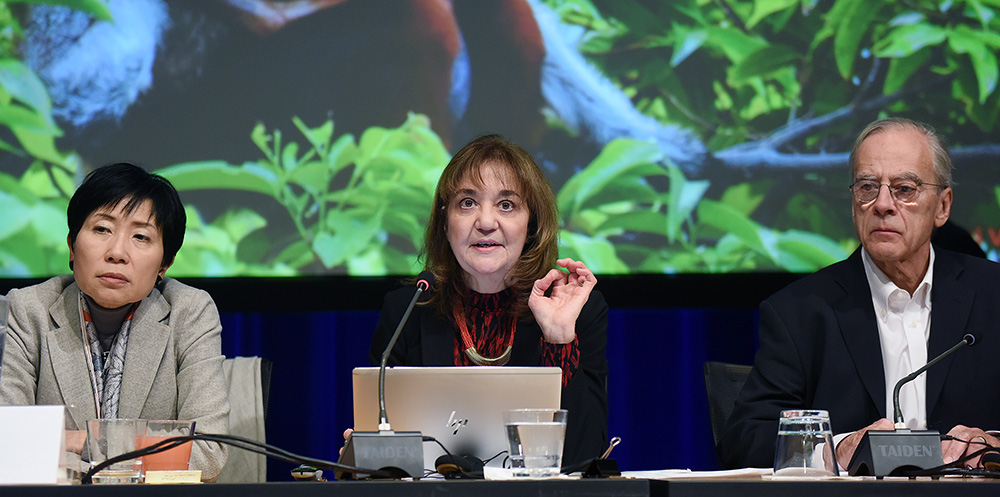
STAP Chair Rosina Bierbaum (center)
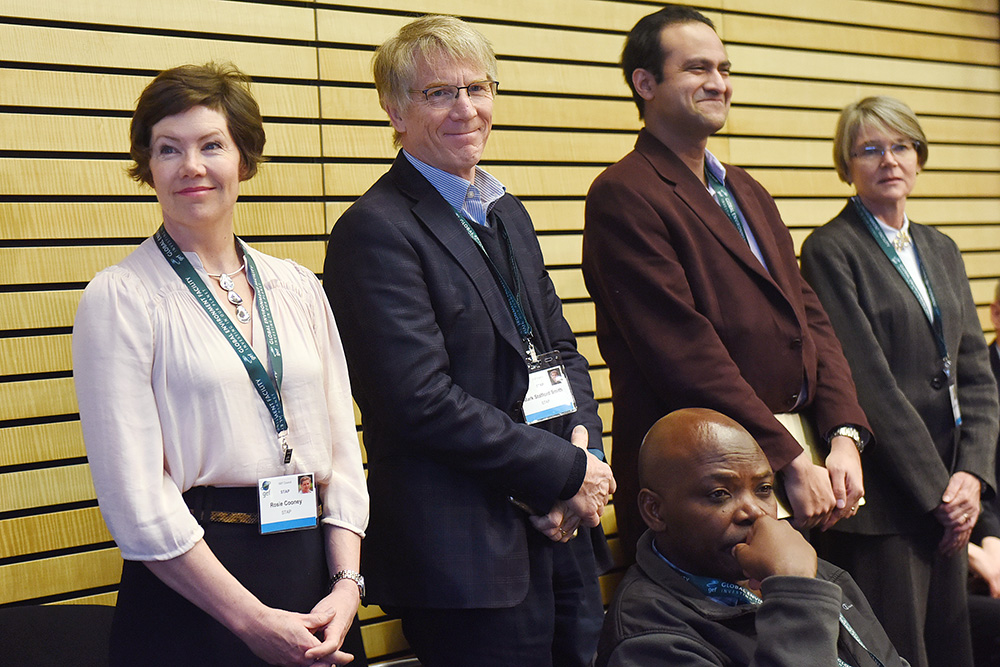
New STAP members
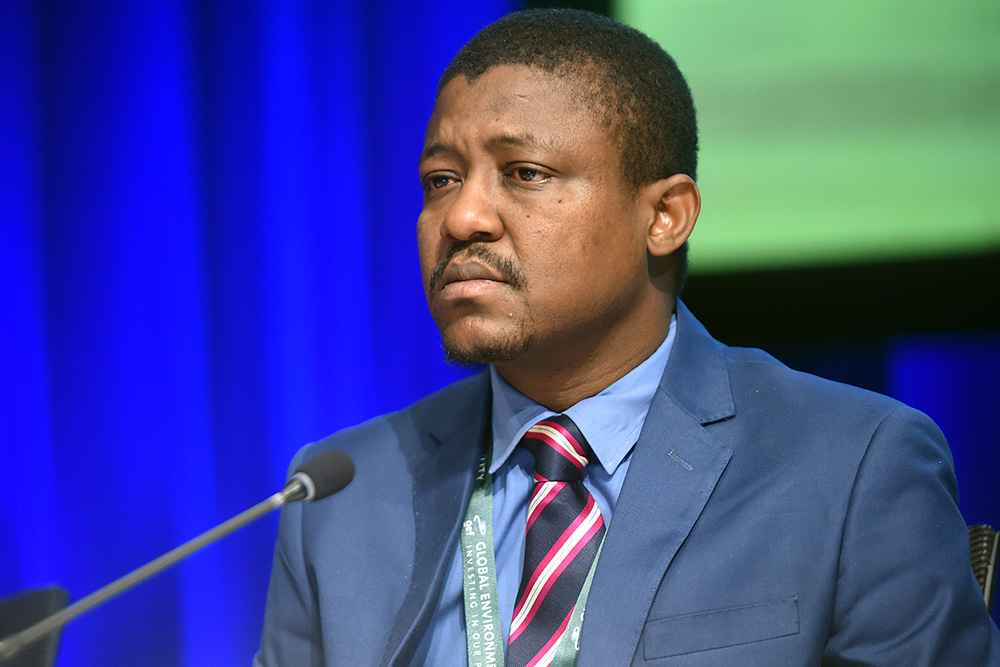
GEF Council Co-Chair Abdul Bakarr Salim, Sierra Leone
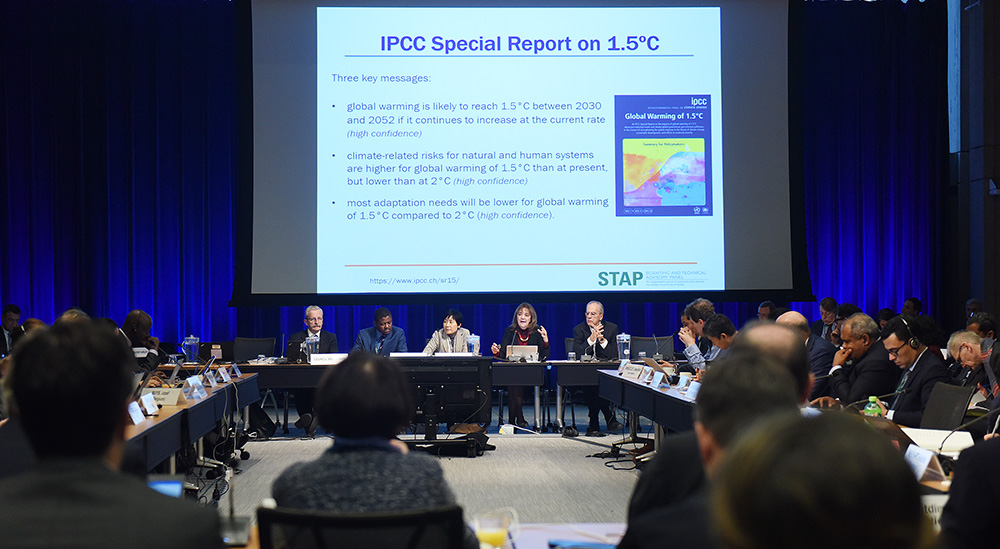
A view of the room during the presentation of STAP Chair Rosina Bierbaum
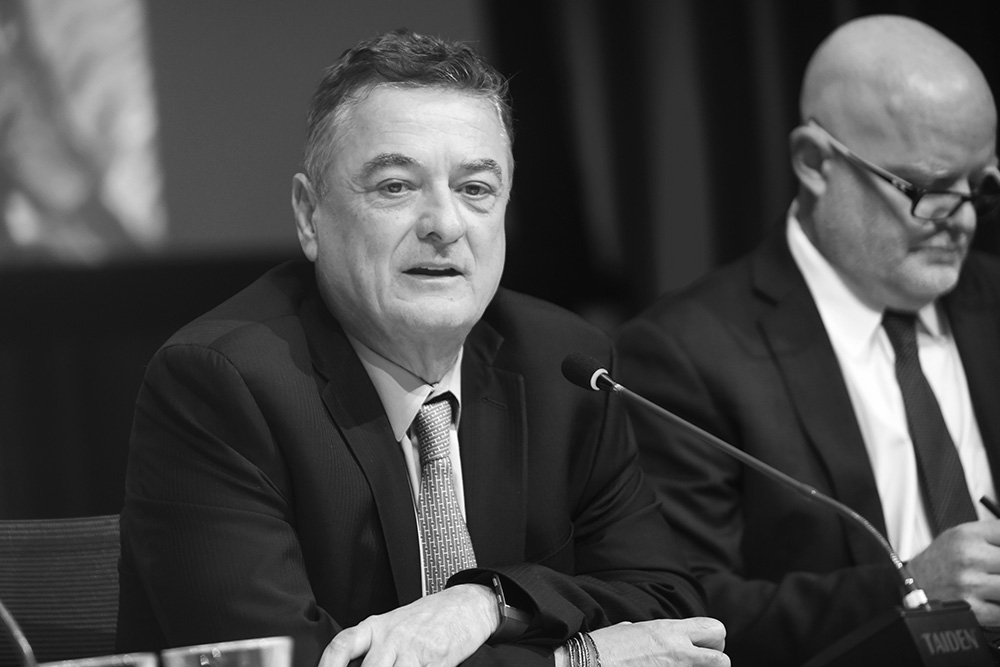
Gustavo Fonseca, Director of Programs, GEF Secretariat
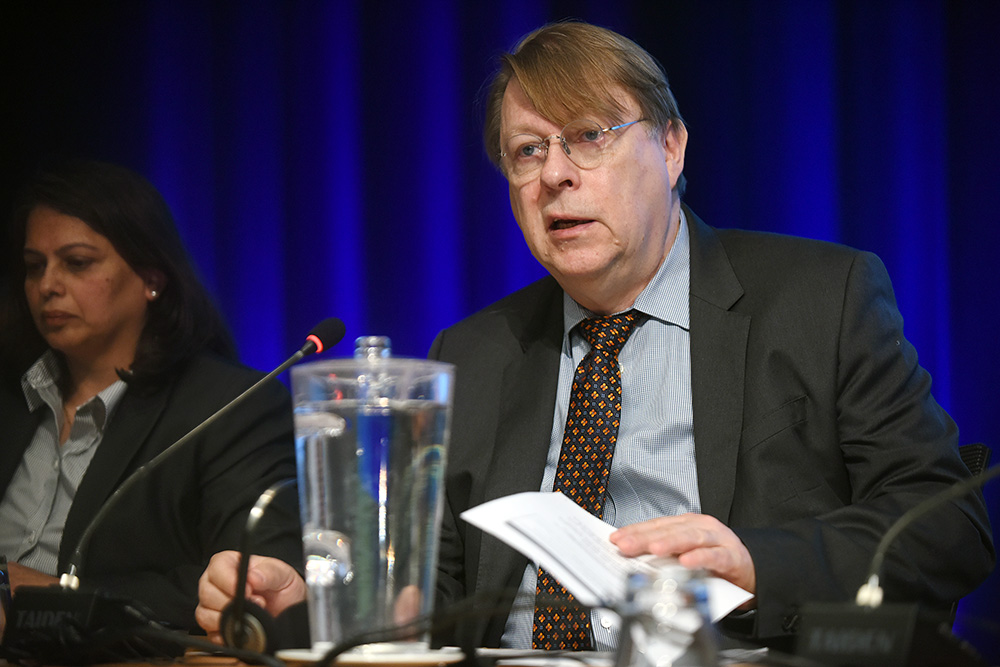
Juho Uitto, Director, Independent Evaluation Office (IEO), GEF
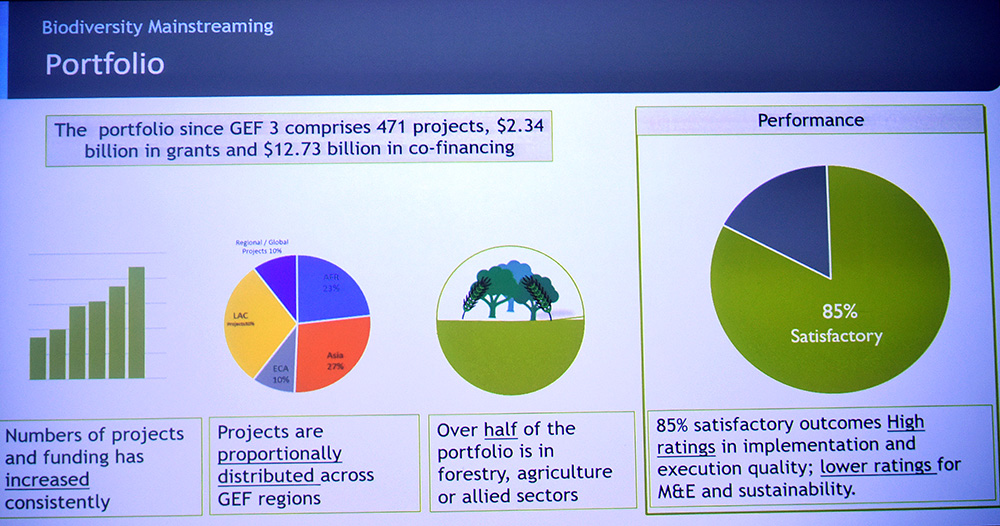
A screen shot on mainstreaming biodiversity during the presentation of the IEO
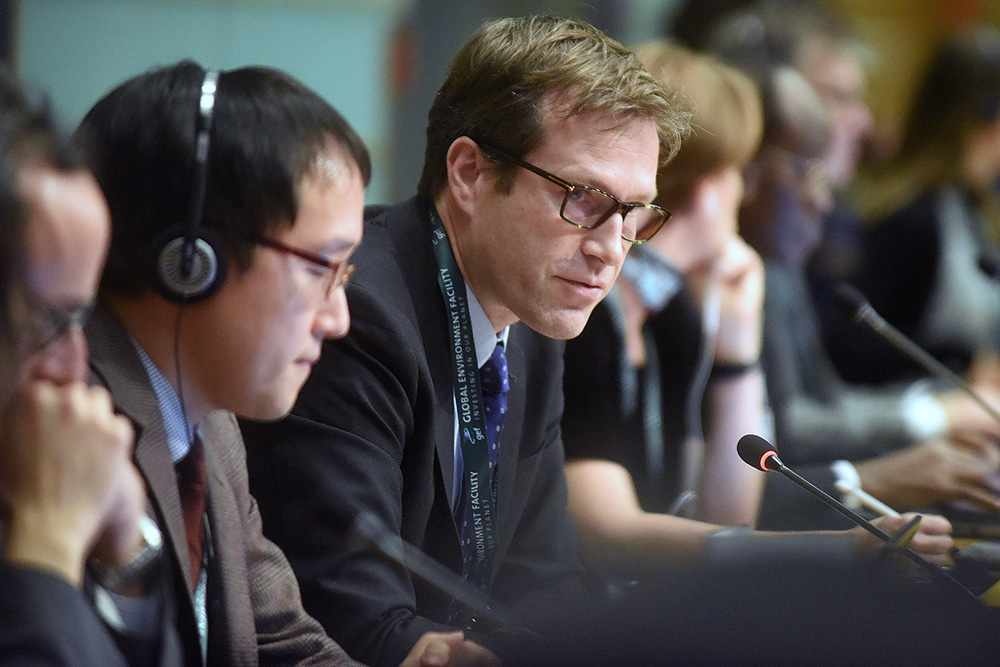
Frank Moser, Stockholm Convention
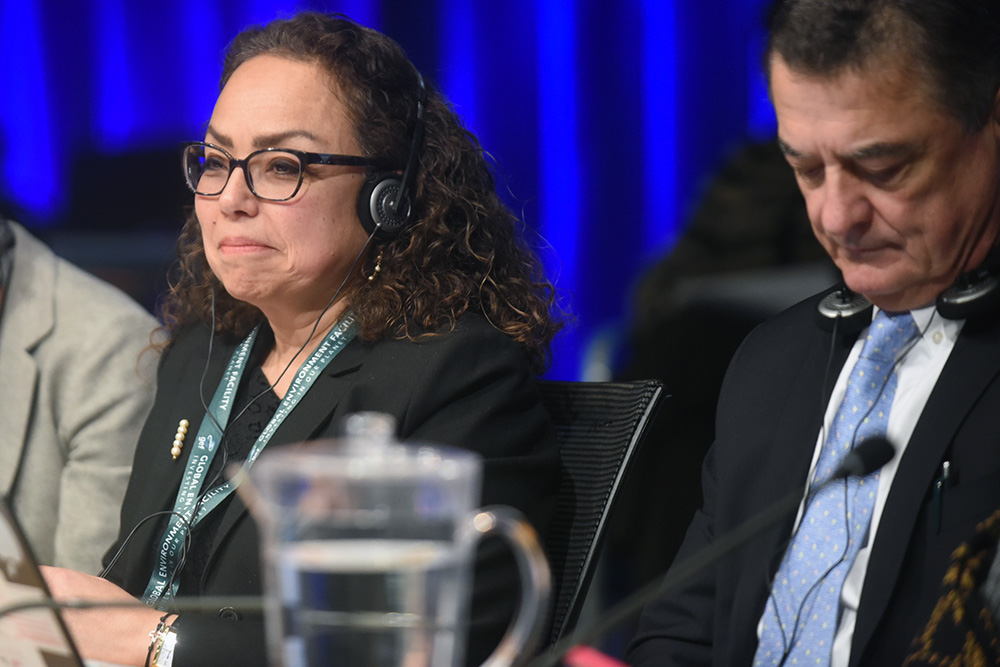
Rossana Silva, Executive Secretary, Minamata Convention on Mercury
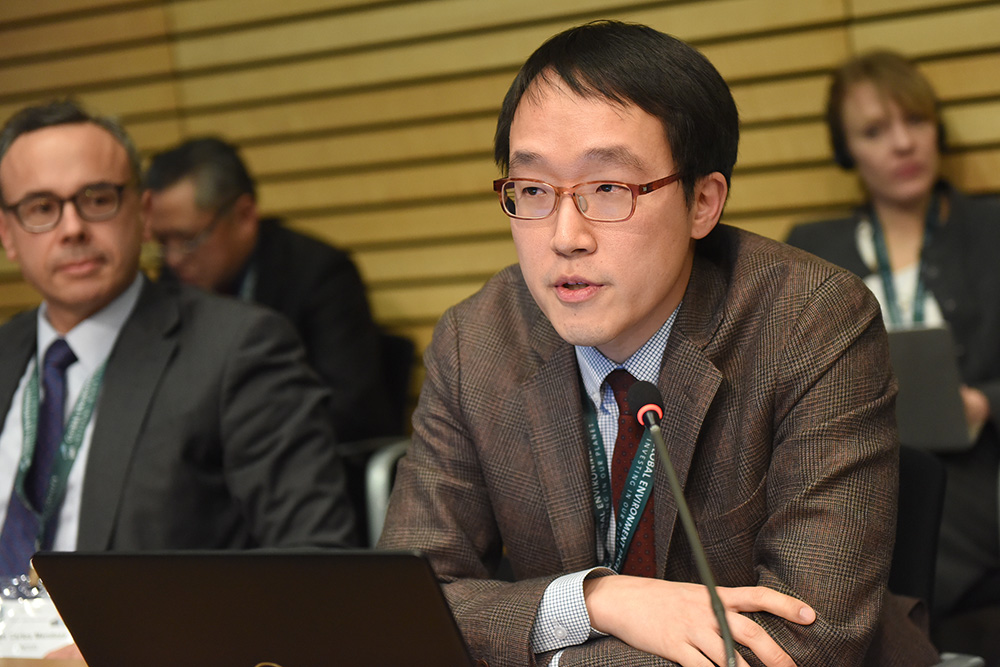
Hyunwoo Kim, UNFCCC Secretariat
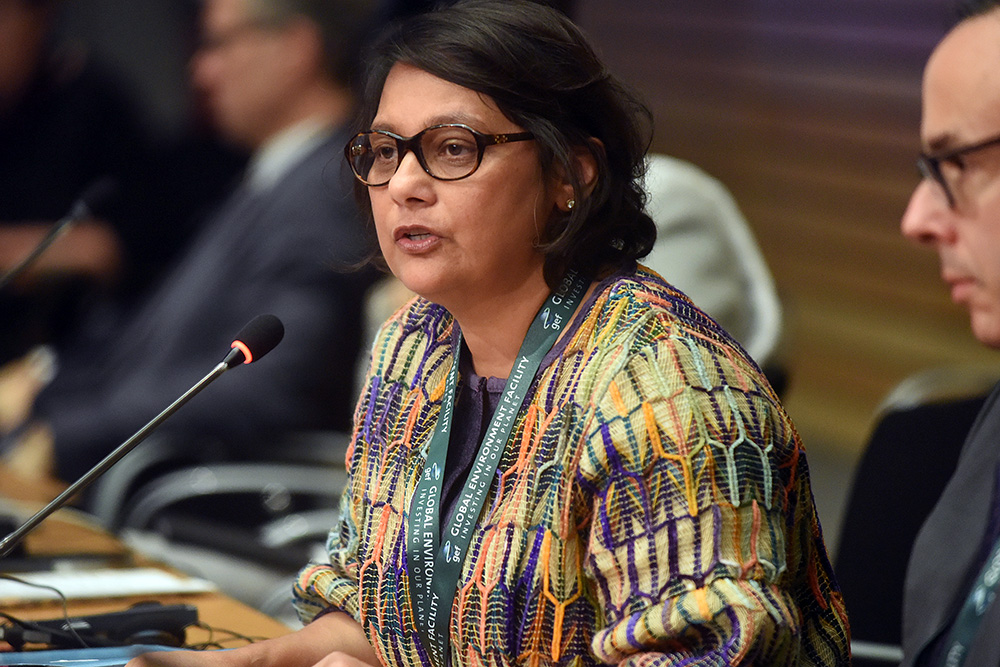
Jyoti Mathur-Filipp, Convention on Biological Diversity (CBD) Secretariat
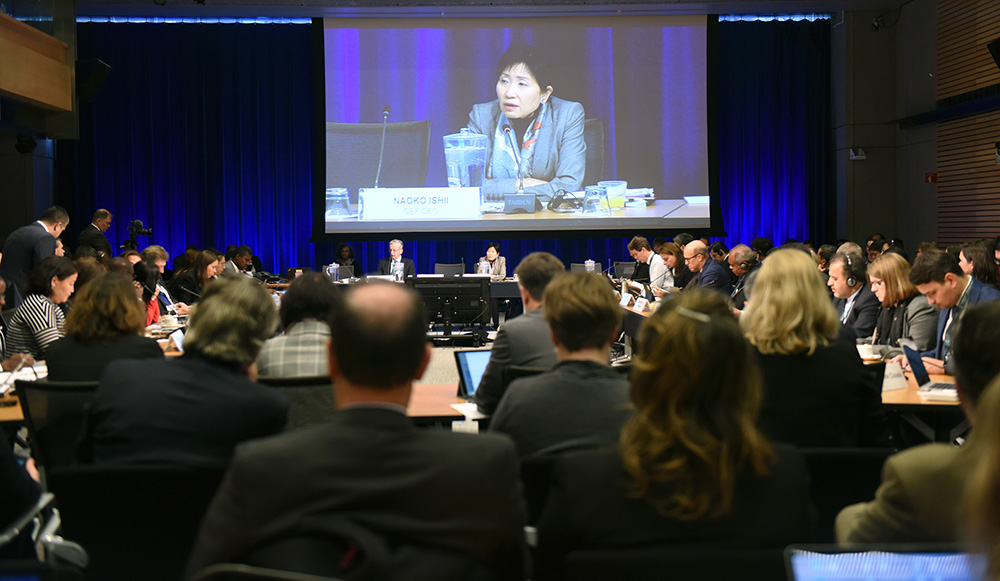
Naoko Ishii, GEF CEO and Chairperson, opened the 55th meeting of the GEF Council on Tuesday morning, 18 December. She highlighted that this would be the first Council meeting since conclusion of the seventh replenishment of GEF (GEF-7), and therefore commences a new phase for the GEF. She stressed the need to urgently address global environmental challenges, citing recent scientific reports that reveal that “we are not winning the war against global degradation.” She also highlighted: the increased enthusiasm for adaptation, including the growing interest of the private sector in the adaptation agenda; the GEF’s commitment to work with the Convention on Biological Diversity (CBD) to build a coalition for a successful adoption of a post-2020 framework; and the role that GEF-7 can play in catalyzing transformational changes for food and land use systems, sustainable cities, and the energy transition, while protecting key biomes. She looked forward to the Council’s efforts during the three-day meeting to discuss ways to improve the GEF’s efficiency, transparency and safeguards, in order to deliver results as soon as possible.
Also on Tuesday, Abdul Bakarr Salim, Sierra Leone, was elected Co-Chairperson of the meeting, and Council Members proceeded through agenda items on: Annual Portfolio Monitoring Report 2018; Policy Measures to Enhance Operational Efficiency, Accountability and Transparency; Updated Policy on Environmental and Social Safeguards; Updating the GEF’s Minimum Fiduciary Standards Related to Anti-Money Laundering and Combating the Financing of Terrorism; Harmonizing the Rules and Requirements for all Agencies; and Work Program.
At the close of the day, the Council adopted the first Work Program of GEF-7, which comprises 18 projects in 25 recipient countries, and amounts to US$157.8 million, including GEF project financing and Agency fees. The Work Program is expected to leverage US$819.7 million in co-financing.

GEF Council Members during the morning session
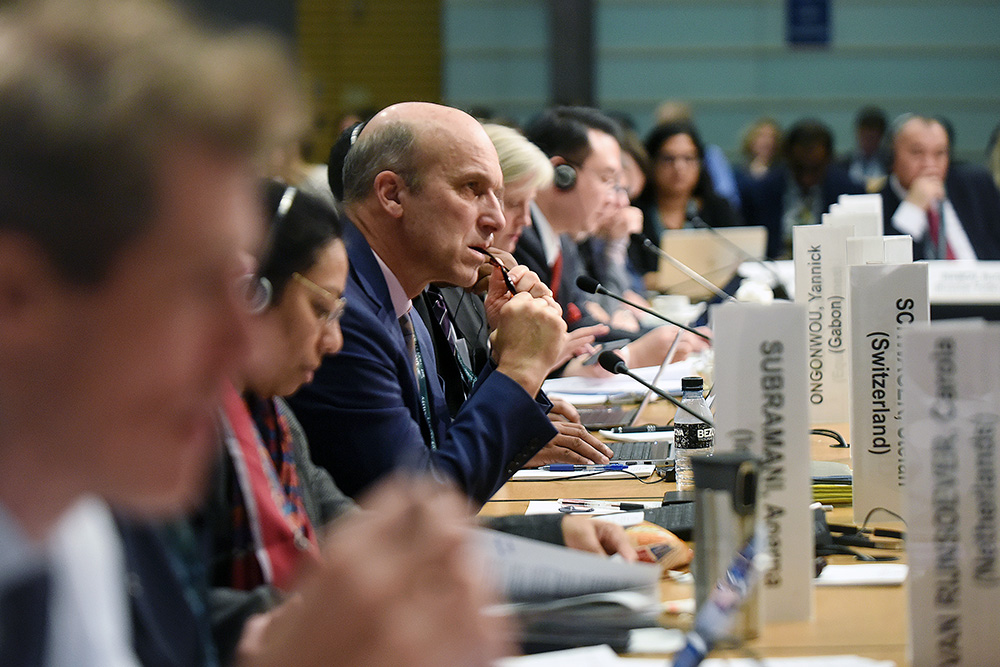
GEF Council Member Stefan Schwager, Switzerland
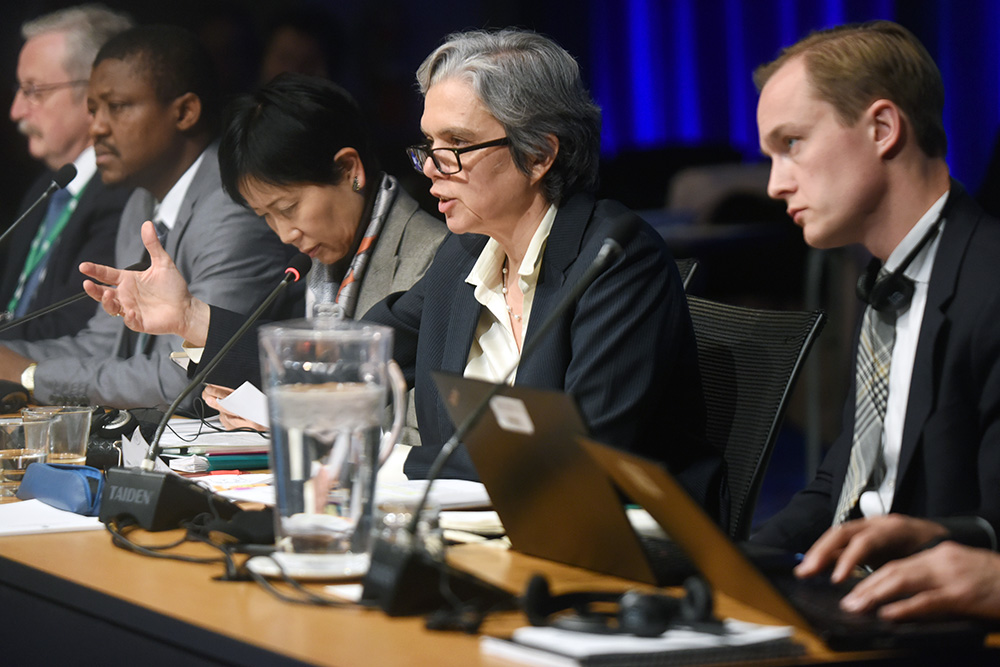
Francoise Clottes, Director of Strategy and Operations, GEF Secretariat
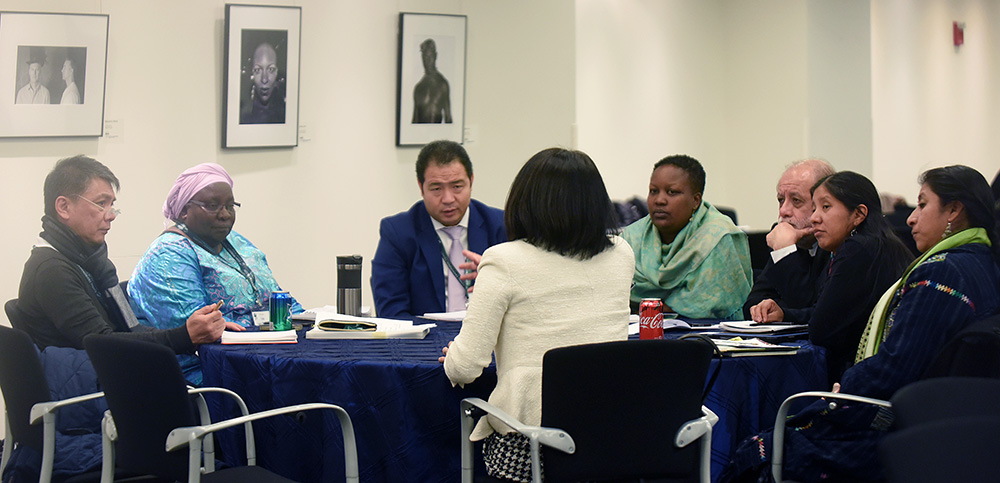
Civil society representatives meet to discuss financing
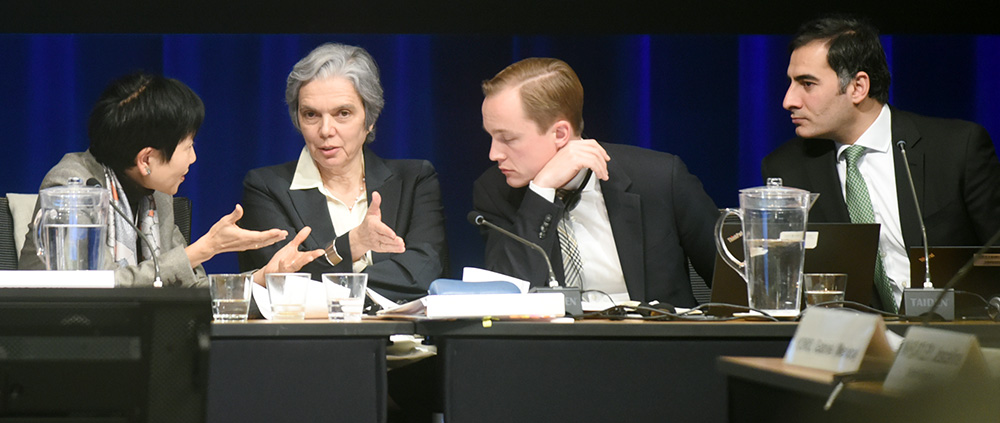
Members of the GEF Secretariat
The GEF Council Consultation with Civil Society Organizations (CSOs) meeting took place on 17 December 2018, during which participants discussed the implications of the seventh replenishment of the GEF (GEF-7) and gender policies, among other agenda items. Victor Kawanga, GEF-CSO Network Chair, opened the GEF Council Consultation with CSOs.
Naoko Ishii, GEF CEO and Chairperson, reflected on scientific reports released since the June 2018 GEF Assembly, including the Intergovernmental Panel on Climate Change (IPCC) Special Report on Global Warming of 1.5ºC (SR15) and a World Wildlife Fund (WWF) report released in October showing that the world has lost 60% of its biodiversity since 1970. She stressed that “all the signals are that we are not winning the battle against climate change and environmental degradation; the sense of urgency is becoming really strong.” She said GEF-7 offers “a very powerful instrument” to arrest the underlying causes of these trends, to catalyze transformational change through tackling food systems, sustainable forestry management, the energy transition, and making cities sustainable. She also stressed the importance of the CSO role in getting societies to change.
Two panels convened to discuss issues related to CSO participation in GEF-7. The first discussed the implementation of the updated vision to enhance civil society engagement with the GEF. The second considered the evolving role of CSOs in GEF-7.
A panel also convened on connecting environmental impact and gender equality. CSO representatives discussed issues including: the different knowledge women can bring to the table; incentivizing and empowering women’s entrepreneurship; tapping the energy, skills and abilities of youth to become change agents in environmental policy; and the need to address women’s access to land, land rights and control of natural resources. They also considered the different vision and spirituality indigenous women can bring to addressing environmental problems; the important role women play in transmitting knowledge from one generation to another; and how a gender lens can make climate action more effective, more equitable and more sustainable.
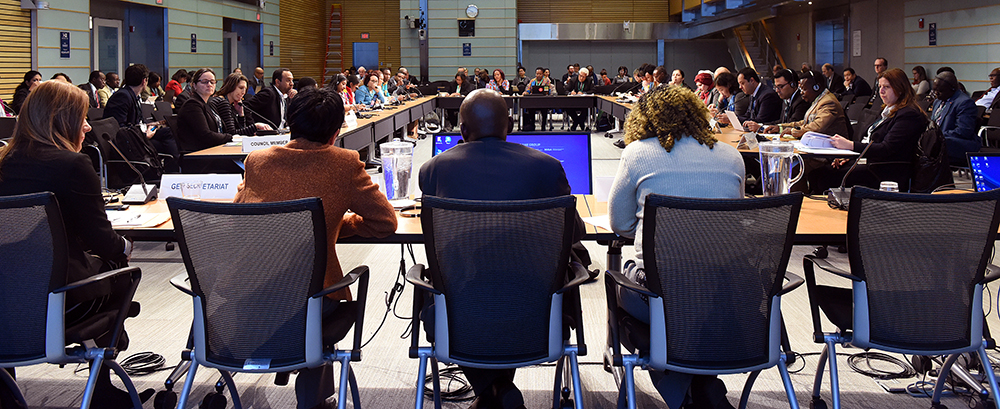
A view of the room during the opening session

L-R: Fiu Mataese Elisara, CSO Network, Samoa; Patricia Turpin, Environment Tobago, Trinidad and Tobago; Nana Janashia, CENN, Georgia; Pilar Barrera-Rey, GEF Secretariat; and Edna Kaptoyo, International Alliance of Indigenous and Tribal Peoples of the Tropical Forest

Sarah Wyatt, GEF Secretariat
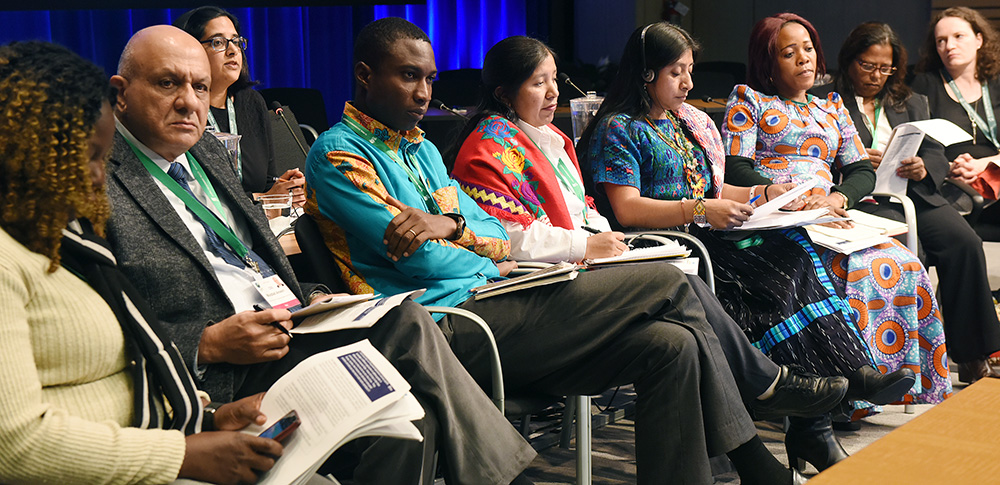
L-R: Mgiavese Tracu Ogbonna, Women Environmental Programme, Nigeria; Muqdad Amee, Together to Protect Human and Environment Association; Platform on Disaster Displacement; Chibeze Ezekiel, Ghana; Viviana Elsa Figueroa, Indigenous Women's Biodiversity Network, Argentina; Ana Francisca Perez Conguache, Socia de la Red de Mujeres Indigenas y Punto Focal en Guatemala; Caroline Usikpedo-Omoniye, Niger Delta Women's Movement for Peace and Development; Anooradah Pooran, Mauritius; and Kame Westerman, Conservation International
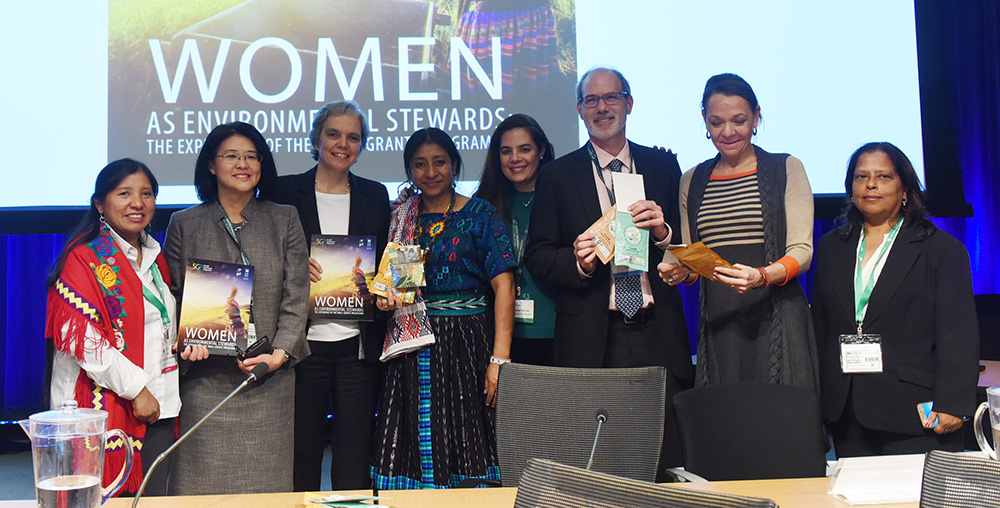
Launch of the report ‘Women As Environmental Stewards: The Experience of the Small Grants Programme’
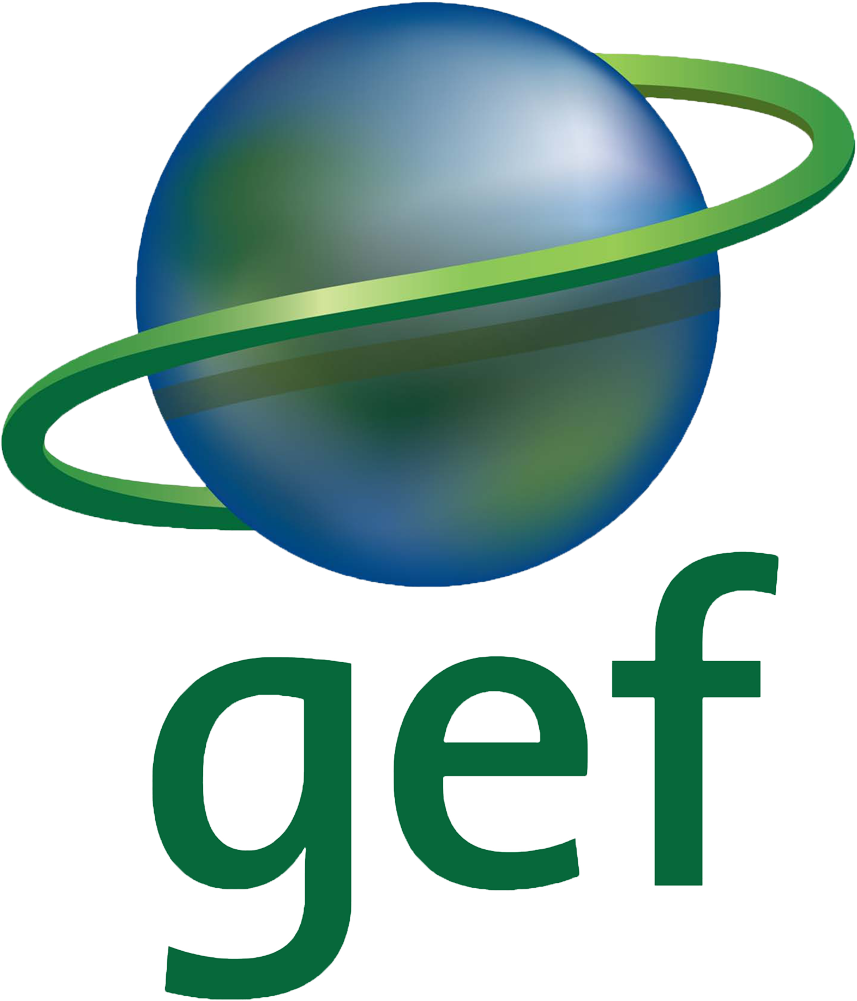 Specific funding for IISD Reporting Services coverage of the 55th Meeting of the GEF Council has been provided by the GEF Secretariat
Specific funding for IISD Reporting Services coverage of the 55th Meeting of the GEF Council has been provided by the GEF Secretariat